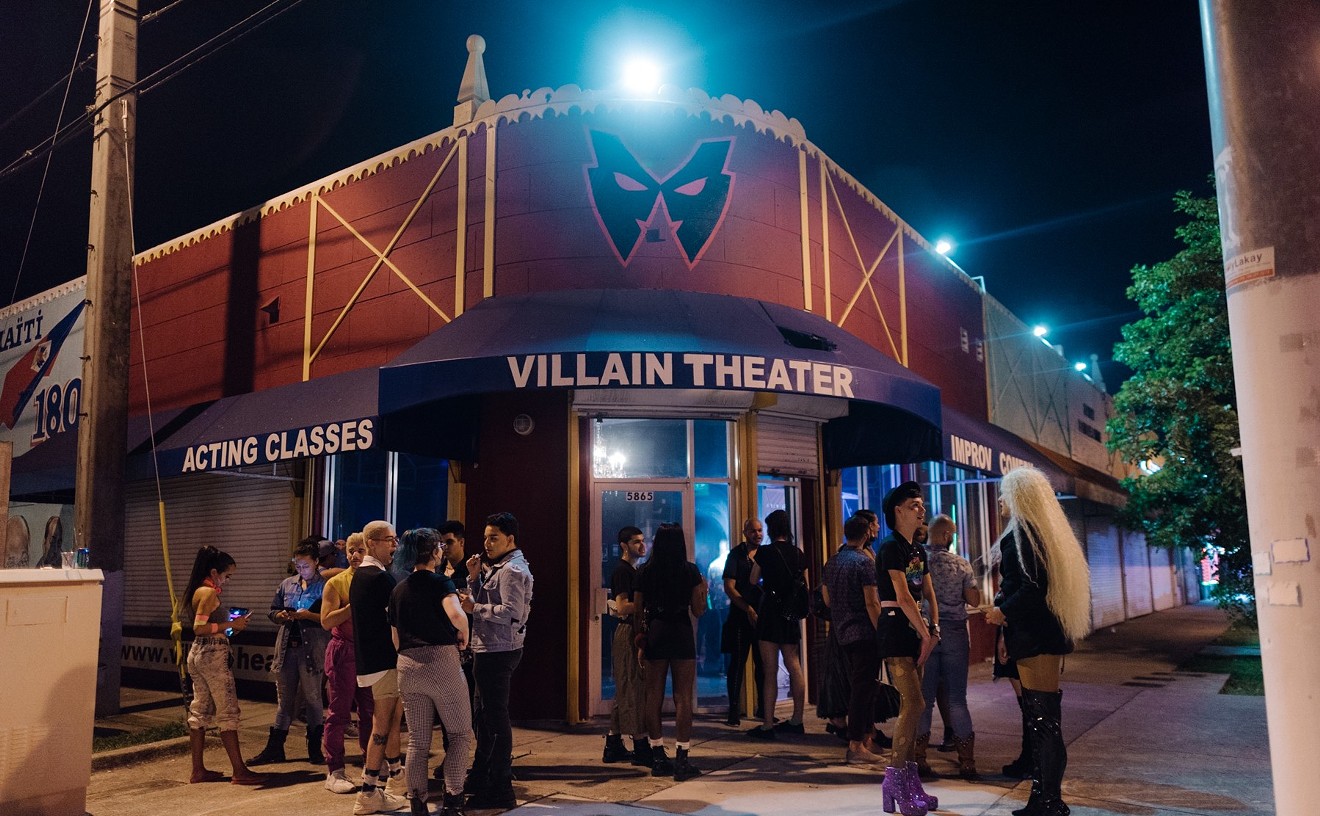It took us a while to figure out that Athena Dion was suddenly dominating South Florida's drag scene. The reason: She can look different every time she appears. There she was during last year's Miami Beach Pride celebration, when she sashayed down the runway like a supermodel in a show thrown by L.A. fashion label Marco Marco. In February, she made the perfect Posh Spice stand-in as part of a Spice Girls tribute act assembled for Mel B's visit to Sugar Factory. At a recent edition of the Lab, the Friday-night party she hosts at Score, she was dressed in her best Wednesday Addams cosplay. Other times, her look ranges from Latina diva to steal-your-man to crazy club kid. Whatever the look, most times she appears every bit the goddess her name suggests. But once you learn how to spot her, you'll notice her everywhere. From ads for the Miami Beach LGBT Visitors Center, to stomping the pavement in front of Palace, to delivering brunch shows at Señor Frog's, there she is. Catch her if you can.
Readers' choice: Elaine Lancaster








